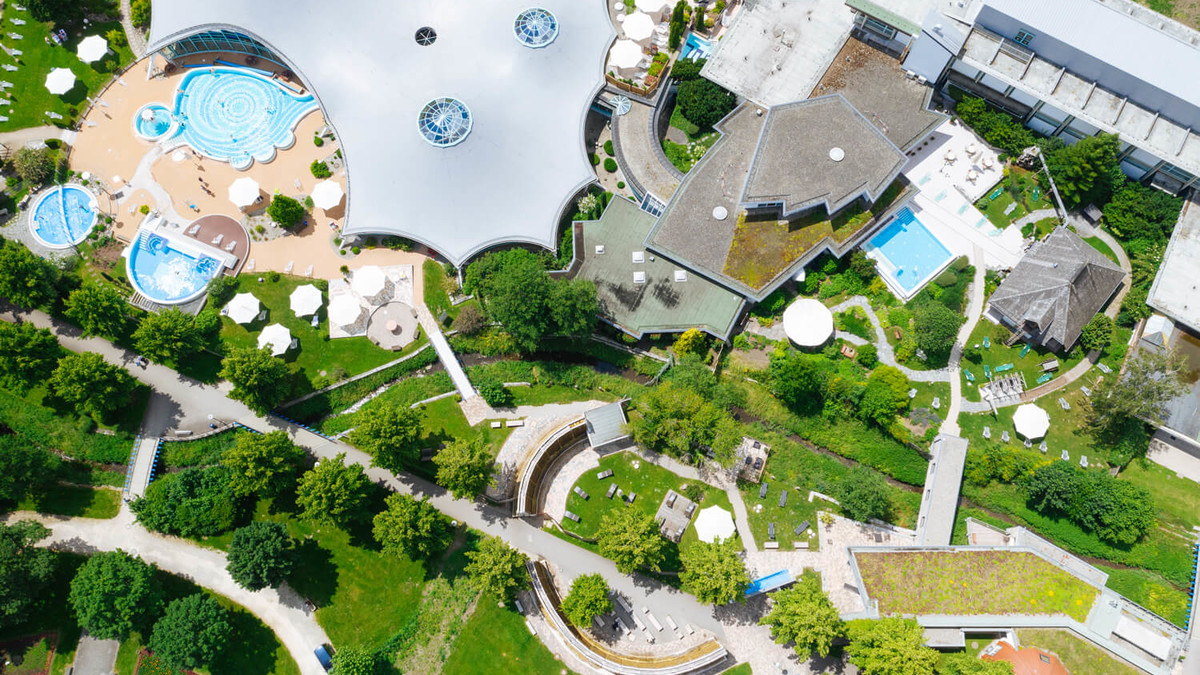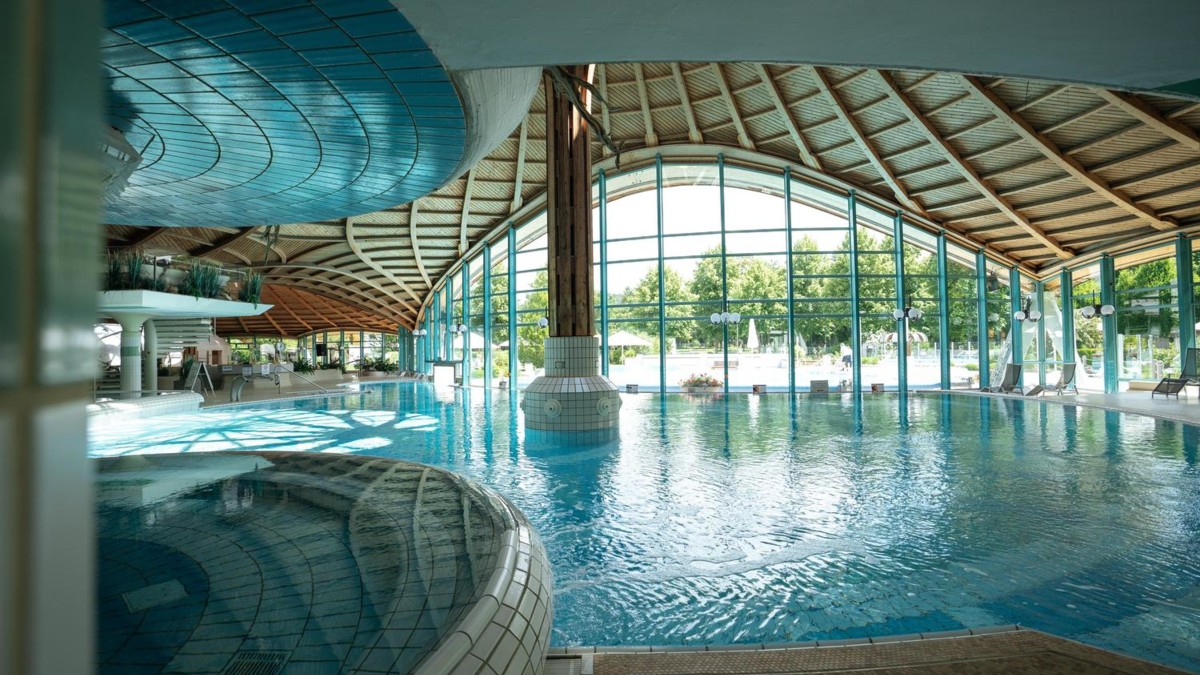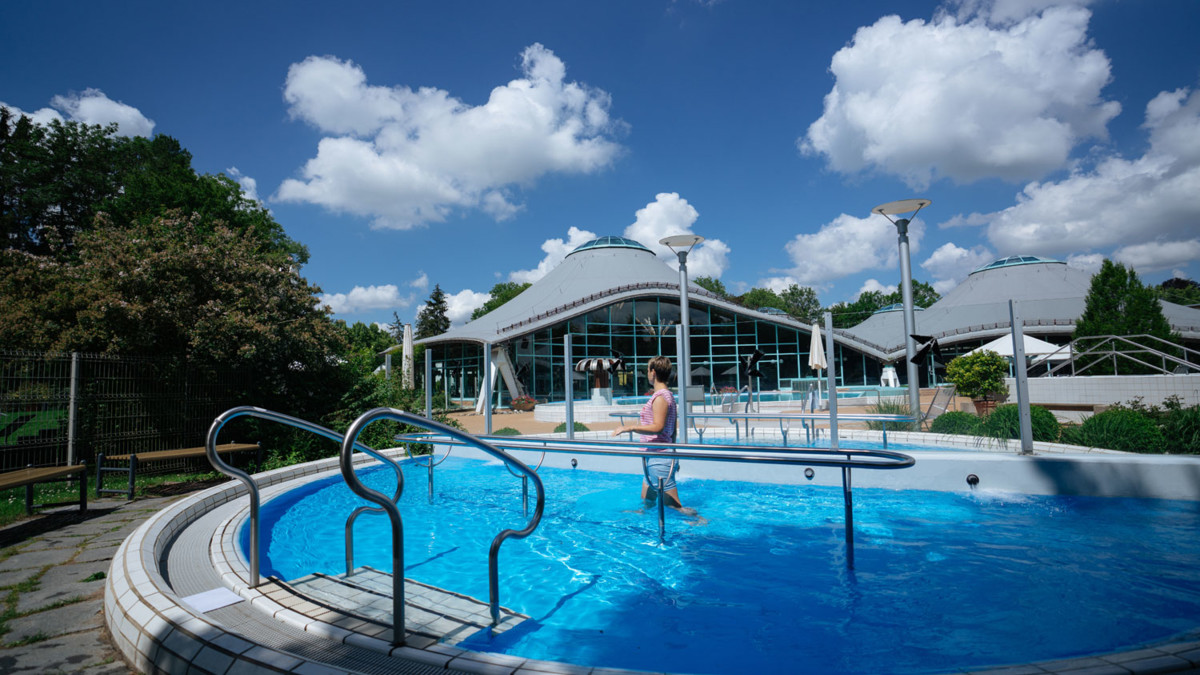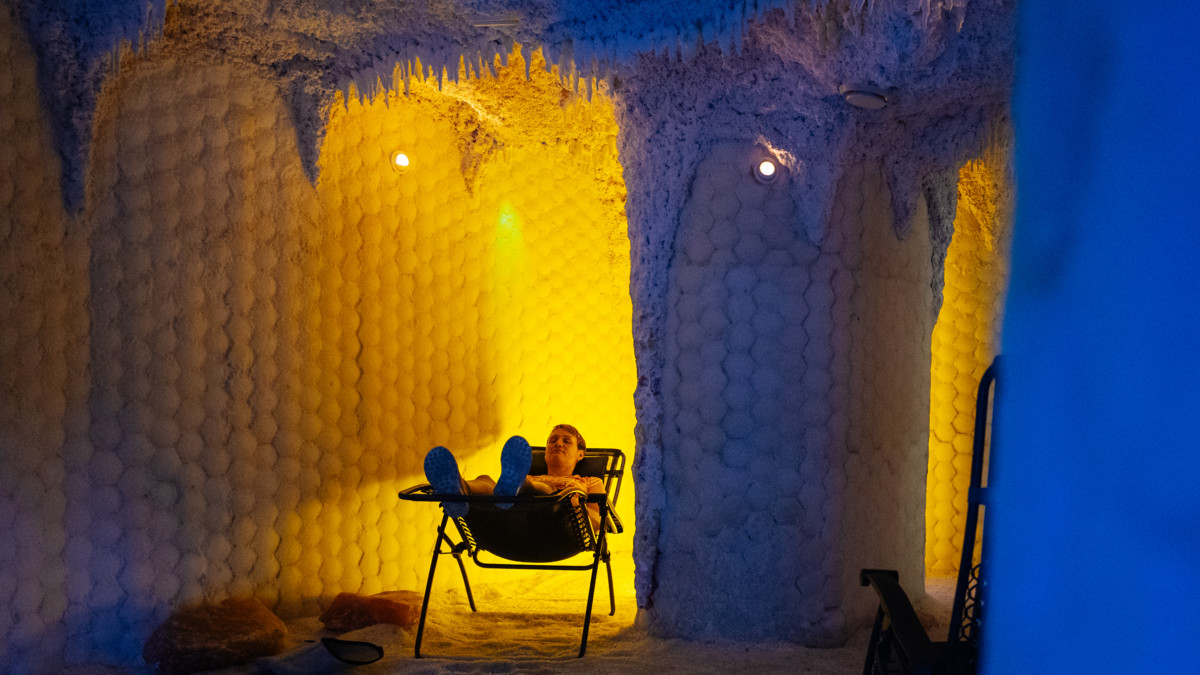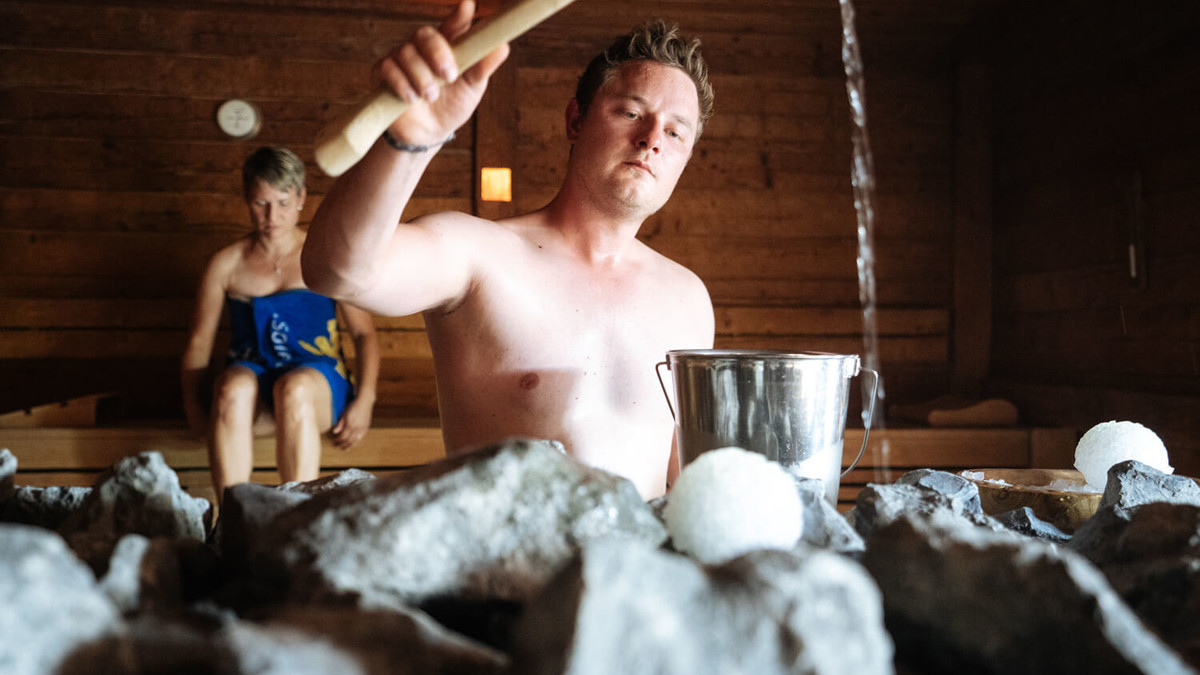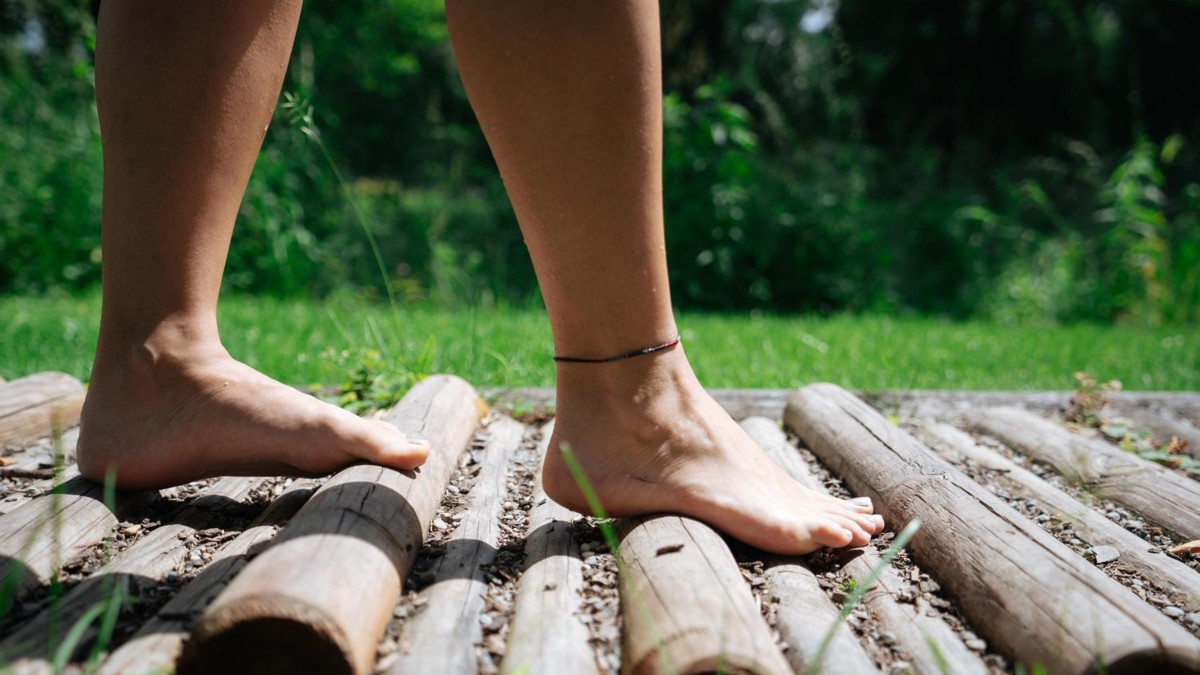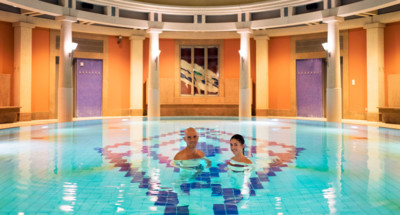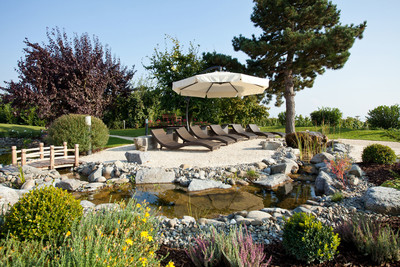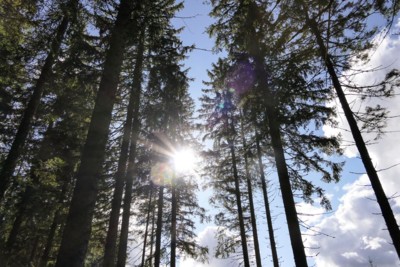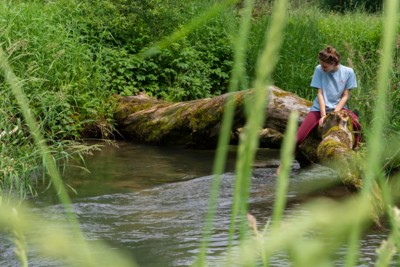Relax naturally
Well-Being in SouthWest Germany
© Oliver Raatz
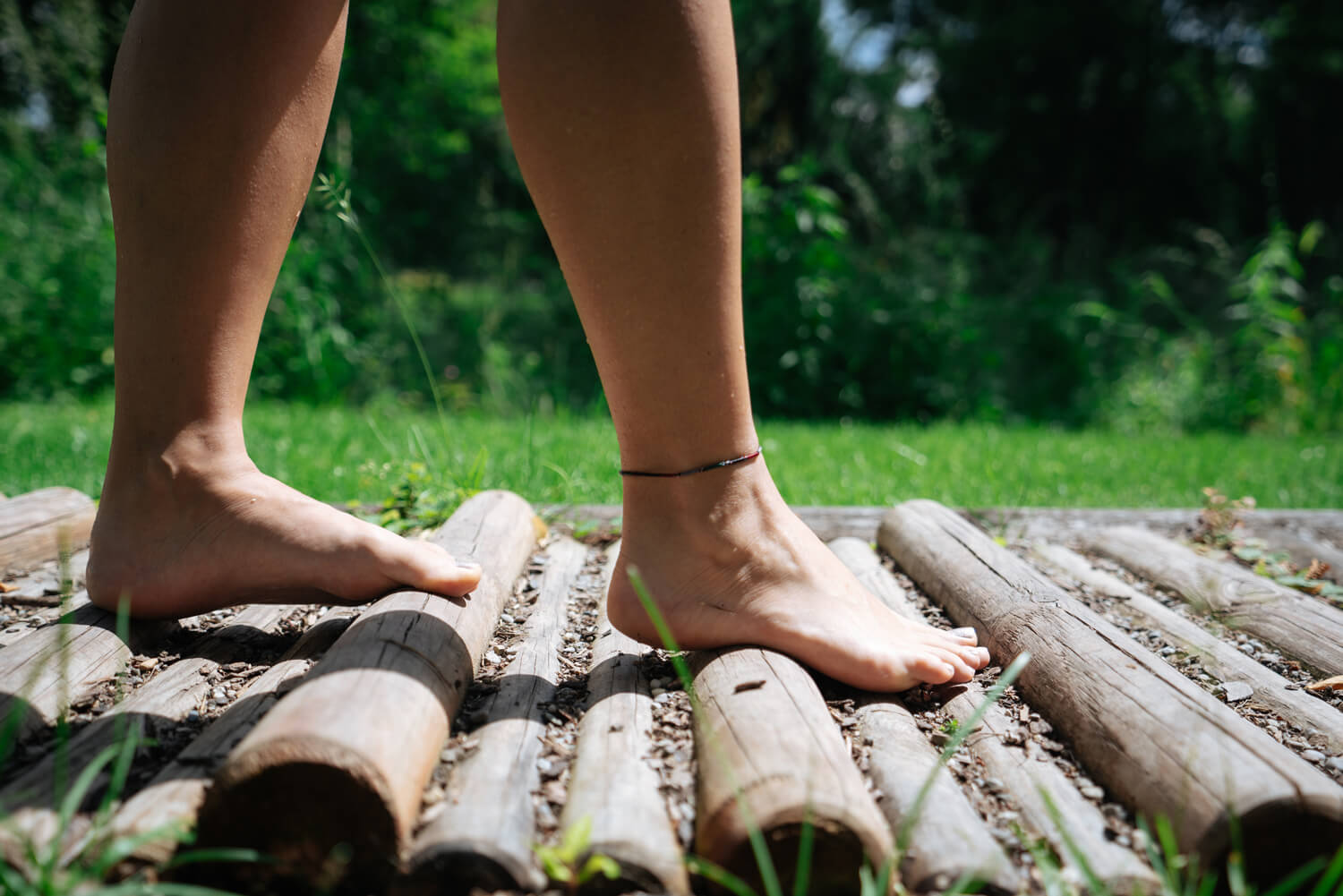

The best way to recharge our batteries? Experts say we relax better in harmony with nature. And Southwest Germany’s spas and health resorts offer so many options. We visit Bad Dürrheim in the Black Forest.
It is a hot summer day in Bad Dürrheim, southwest of Stuttgart. But the air in the long wooden building is pleasantly cool. In the Gradierwerk, a long wooden building, where salty mineral water trickles down through 6,000 bundles of blackthorn twigs, this saltwater respiratory centre creates a healthy microclimate. Just watching the drips form pearl-like water droplets is calming. More importantly, inhaling the ozone-like air helps to treat respiratory problems, such as asthma and bronchitis. But, like being at the seaside, the salty air also boosts the well-being of healthy people. The recommendation is to stay here for 20 to 30 minutes, breathing deeply, closing our eyes and letting go completely.
Increasingly popular in Europe, this Gradierwerk therapy is not limited to Bad Dürrheim. Similar saltwater respiratory centres are in other well-known spa destinations in SouthWest Germany, such as Bad Mergentheim, Bad Rappenau, Bad Schönborn, Menzenschwand and Bad Wimpfen. These all have natural springs gushing out saline hot water, at temperatures averaging 28–37° C / 82–99° F. In the indoor and outdoor pools, the heat relaxes the muscles; the buoyant salt water eases painful joints. The salt also improves the complexion.
Using natural forces
In Bad Dürrheim, salt deposits were first discovered 200 years ago. Today, its trio of contrasting specialities is unique in SouthWest Germany. As well as the saltwater spa, it is a climatic health resort, thanks to an altitude of 733 m / 2,400 ft. And, it is a Kneipp spa.
In 2021, Germany celebrates the 200th birthday of Sebastian Kneipp, an early proponent of naturopathic medicine in general and hydrotherapy (using water to treat medical conditions) in particular. His name is usually associated with walking through icy-cold water, but the therapies often consist of plunging parts of the body in contrasting cold and warm water. We go for a stroll in the spa park and, at the Kneipp pool, spontaneously take off our sandals and step into water over our calves. It is so cold that we gasp. But, somehow, wading slowly refreshes our whole body. Afterwards, our feet feel surprisingly warm and light again.
Today, SouthWest Germany’s medical experts are offering more and more recreational and health experiences, all using natural remedies. Guided by the motto, Natur Erholt (Recovering Naturally), they promote the natural benefits of thermal springs, salt brine and special muds, as well as healthy climates, altitude, forests and herbs.
Southwest Germany boasts a dozen specialist Kneipp spa centres
This idea of relaxing and recharging your batteries sounds good in theory, but how does it actually work in practice? Scientific studies know that this varies greatly from person to person. But, in general, the best way to help ourselves is to discover something new, something that contrasts with everyday life. Those with physical jobs relax by doing nothing – or reading a book. Those whose work is intellectual or staring at screens all day benefit from being active. But one thing is certain: the power of nature always has a healing effect. That could mean going for a walk in the forest or booking in for a wellness treatment.
In Bad Dürrheim, the hard thing is deciding what to choose. The Solemar spa has so much, from its thermal baths to the Black Forest sauna and Dead Sea salt cave. Doing water aerobics or gentle swimming, your everyday worries will fade away, as your thoughts wander and your minds go blank. Then, there are activities to keep you busy. You can walk in the spa park, try Nordic walking or work out on the outdoor fitness equipment. Not forgetting yoga and meditation, painting courses in the park, the parkour with fitness equipment or the adventure golf course.
Don’t miss the Barfussweg (barefoot path) in the spa park. Walking on round, cool pebbles seem to massage the soles of your feet. Not so comfortable is stepping on the wood mulch surface. But the idea is to sharpen up the senses and so reconnect with nature. During health-oriented holidays, the body and mind are more receptive to new ways of doing things. Training the senses makes it easier to change habits, to notice the little things in life, and to gain energy. And to find answers to questions. What do we really need to be happy and satisfied? What is really important in our lives? What are the best changes to make? Which habits should we keep? And which habits should we drop?
Then, there is digital detoxing. This is the simplest way to properly recharge our batteries – but also the hardest. Even on holiday, 70 percent of us can be reached by our employers or clients. Yet, health experts recommend that we switch off our phones. Once we are offline, we enjoy a new freedom. We have more time for our own thoughts and new experiences, as well as friends and family. Time to hike or bike on the network of routes around Bad Dürrheim; time to listen to the sounds of the countryside. Or, do as we do: just stroll through the spa park.
Did you know?
Why SouthWest Germany’s spas are special
The Romans knew a good thermal spring when they saw one – and discovered dozens in present-day Southwest Germany. Today, they are the foundation of the region’s spa culture, which includes some 60 spa destinations. The names of many of them begin with Bad, because “Bad” in German means bath. But, whatever they are called, they all use springs that provide naturally hot, mineral-rich water. The temperature is altered for various uses from thermal baths for soothing tired muscles to pools with underwater jets for massaging aching backs. Even water parks for family fun! Spas are part of daily life in SouthWest Germany. As well as offering pampering and relaxation, they provide much, much more. Each spring has different minerals, perhaps iron, magnesium, calcium or potassium. And these help specific ailments, from arthritis and circulation to skin conditions and stress. Therapies could include mineral-rich mudpacks and salt cave therapy for respiratory conditions. And, of course, more familiar treatments are also on the menu: facials, manicures and pedicures; aromatherapy and massages; scrubs, wraps and saunas. Ancient traditions, such as Ayurveda and Qi Gong, might also be incorporated. As for the ambience, some spas have Art Nouveau grandeur; others are contemporary; all are staffed by highlytrained professionals. And, most importantly, they are open to all.
More information on relaxation and health holidays in Bad Dürrheim and the other health resorts and spas:
www.naturerholt.de
Want to Know more?
You May Also Like
Learn more about the relaxed side of Southwest Germany

